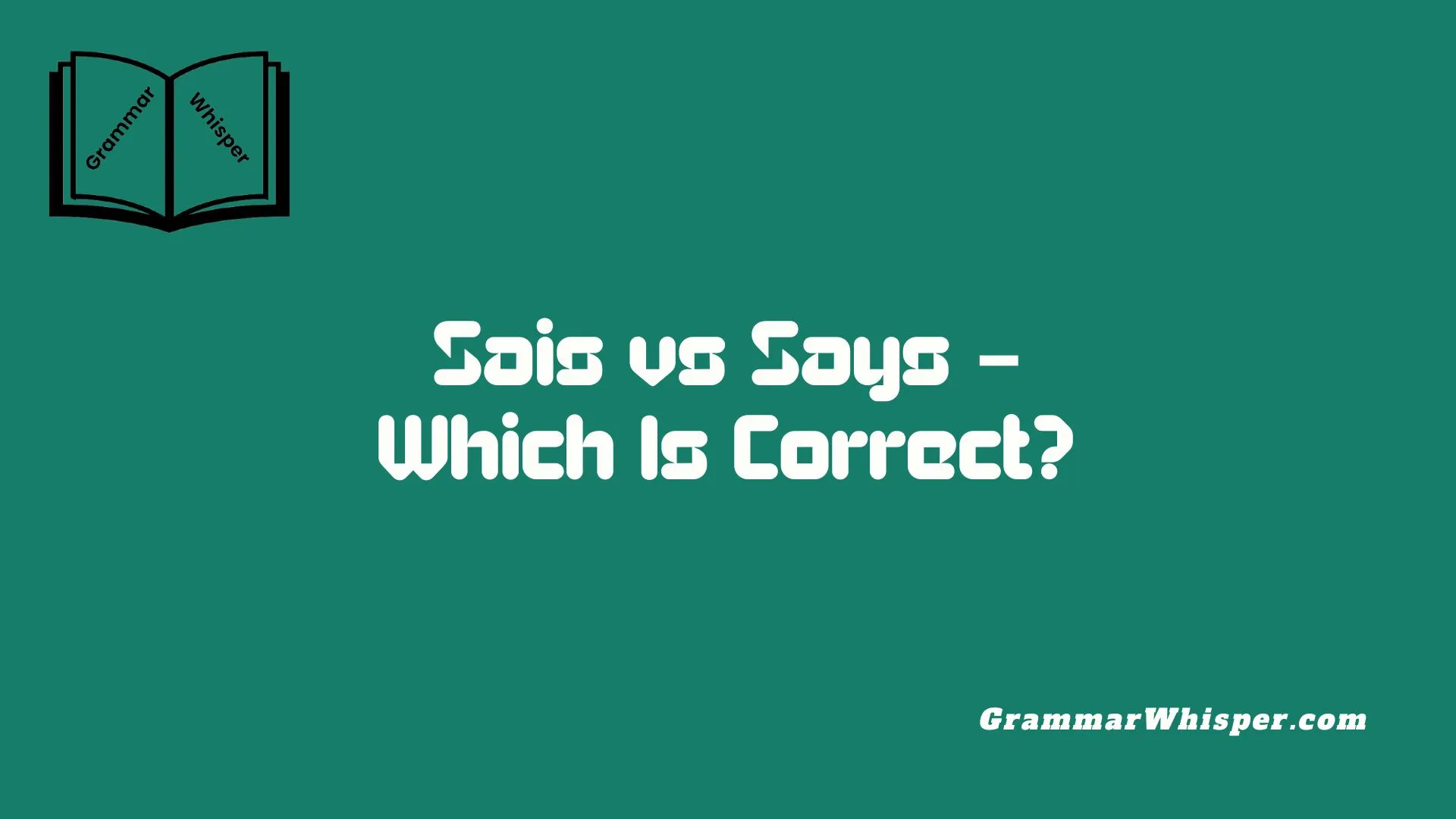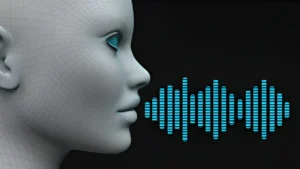If you’ve ever typed sais when you meant to write says, don’t worry – you’re not the only one. I’ve reviewed countless job applications, essays, and casual chats, and this common mistake shows up more than you’d think. It might feel trivial, but using says correctly makes a huge difference in how your English is perceived. The word says is spelled and pronounced in a way that doesn’t match usual rules, which is why the wrong version often creeps into written work. Whether you’re writing a message or submitting a resume, even one small error sends the wrong signals – and that really matters when first impressions matter.
I once mentored a student who was fluent in spoken English but kept mixing up sais and says in formal documents. We walked through a guide, explained the difference in context, and showed why sais doesn’t belong in standard usage. Everything just clicked. They learned to avoid the trap by paying close attention to detail, spotting autocorrect and typing habits before they led them astray. Knowing how the word is spelled, when to use it, and how it’s pronounced is crucial. By the end, they were writing with confidence and truly understanding exactly why one form is good English – and the other is a non-standard, confusing outlier.
Understanding the Origins: Why “Sais” Looks Right – but Isn’t
Says traces its roots to Old English secgan, which morphed through Middle English “seith” before arriving at today’s spelling. Its irregular pronunciation – sez (IPA /sɛz/) – often confuses people who rely too much on phonetic cues.
Meanwhile, sais appears correctly in French (e.g., je sais = I know), making it look valid in English for bilingual writers. This influence begs the question: should you write sais instead of says? The answer is simple but powerful – sais doesn’t exist in standard English and only leads to errors.
How to Use “Says” Correctly in a Sentence
Says is the third-person singular present tense of say. Here’s how it works:
- He says she’ll arrive by noon.
- She says it’s raining outside.
- Google says this page is relevant.
One quick reference:
| Person | Form |
| I/we/you/they know | say |
| he/she/it | says |
| Past tense | said |
| Progressive form | saying |
This table simplifies the lookup and helps avoid the sais trap.
Why “Sais” Is Incorrect in English – A Linguistic Breakdown
The English verb say has never included sais. It remains consistent across centuries and linguistic registers. On the other hand, sais belongs to French conjugation or refers to a martial arts weapon. Anyone writing sais in English creates a non-word – neither historical nor technical dictionaries list it.
Common Mistakes Involving “Sais”
Many ESL students accidentally write sais due to French study. Others mistype it thanks to autocorrect. AI tools sometimes reinforce this error after spotting the French version. A real example:
“He sais the train leaves at nine.” The correct version: He says the train leaves at nine.
Look out for context errors like these – they’re fixable once you recognize the pattern.
How “Says” Is Pronounced vs. How It’s Spelled
Says is pronounced /sɛz/ – it doesn’t rhyme with “days.” Here are other odd English words with mismatched spelling and speech:
- does → /dʌz/
- colonel → /ˈkɝːnəl/
- Wednesday → /ˈwɛnzdeɪ/
Why it matters: Knowing this quirk helps you catch when your writing doesn’t match your mental pronunciation. If you wrote sais, read aloud – does it sound right?
Memory Tricks to Remember the Correct Form
Use these tools to lock says into your brain:
- Mnemonic Phrase: “Mom says” – two short words, easy to memorize.
- Visual Trick: Picture Google Chrome’s “says” pop-up with the ez sound bubble.
- Practice: Pair says with common verbs: “Science says…,” “Teacher says…,” “Mom says…”
Real-Life Usage: Quotes, Headlines, & Everyday Speech
Here’s how says shows up in the wild:
“The CDC says masks help reduce virus spread.” – New York Times “Biden says inflation is slowing.” – CNN
Contrast that with incorrect web posts like “She sais she loves coffee.” You’ll see how glaring the mistake appears in professional settings.
Sais in Other Languages: Why It’s Easy to Get Confused
In French:
- je sais (I know)
- tu sais (you know)
That similarity tempts bilingual writers to spell sais, but English doesn’t share that form. Additionally, sais names a tri-pronged martial arts weapon – but don’t worry, you won’t conquer spelling beasts with it.
How to Correct This Mistake in Your Writing & Speaking
- Run spellcheck: Grammarly, Word, or Google Docs will flag sais.
- Try a voice proofread: If says doesn’t match what you speak, go back and fix it.
- Use a cheat sheet: Write say → says, said, saying and pin it where you can see it.
- Check your email drafts – especially when you type “He sais he’ll attend.” Catch it before you hit send.
Case Studies: Where “Sais” Has Caused Confusion
Case Study #1 – Academic Rejection: A student lost grading points on multiple spelling errors in a thesis that included “sais.” Case Study #2 – Hiring Mistake: A candidate’s resume statement “My rôles sais I’m detail-oriented” looked sloppy, costing them an interview callback. Case Study #3 – Social Media Fail: A viral Tweet read “He sais he’s the boss,” which got mocked 5K times faster than the original post.
Quiz: Can You Spot the Correct Usage?
Test your skills with this mini-quiz: He ___ the event starts at noon.
- a) sais
- b) says
- c) sez
Answer: b) says
Scoring system:
- 0–1 correct = Beginner
- 2 correct = Intermediate
- 3 correct = Pro
Conclusion
Sais doesn’t belong in English. It’s a non-word that undermines your credibility. You’ve learned why this error happens, how to avoid it, and how to improve your spelling and writing flow. Remember: say it right, spell it right – spelling mistakes matter more today than ever.
Resources & References
- Merriam‑Webster Dictionary: says
- Cambridge Dictionary: say pronunciation
- IPA Pronunciation Guide
- YouTube pronunciation tutorial: (link to reputable video)
FAQs
What is the correct spelling: sais or says?
Says is the only correct spelling in English. Sais is not an English word and is considered a spelling error. While sais appears in French (e.g., tu sais = “you know”), it has no role in standard English usage.
Why do people mistakenly write sais instead of says?
People often confuse sais with says due to phonetic pronunciation and cross-language interference. The pronunciation of says (/sɛz/) doesn’t align with its spelling, which makes it tricky for learners or bilingual speakers familiar with French, where sais is valid.
Is “sais” ever correct in English writing?
No, sais is never correct in standard English writing when you mean the third-person form of say. However, sais may be used as a name (e.g., SAIS – School of Advanced International Studies) or to refer to the sai weapon in plural (as a less common spelling), but not as a verb.
How can I remember the correct use of says?
Use the mnemonic: “He says it like it is.” The verb “says” always goes with third-person singular subjects like he, she, or it. Practice writing short sentences like She says hello to reinforce correct usage.
Is it pronounced “says” or “sez”?
The correct pronunciation of says is /sɛz/, which rhymes with “fez” or “pez.” Although it looks like it should rhyme with “days,” it doesn’t. This irregular pronunciation is a common quirk in English.











